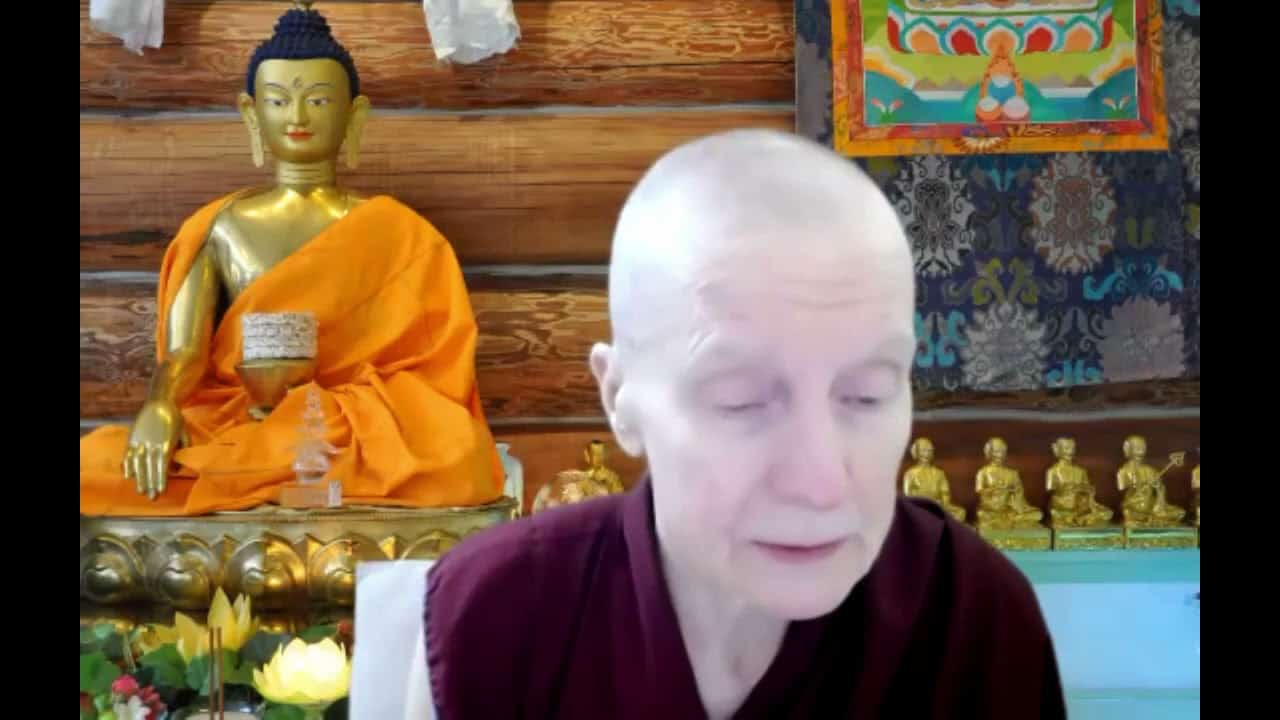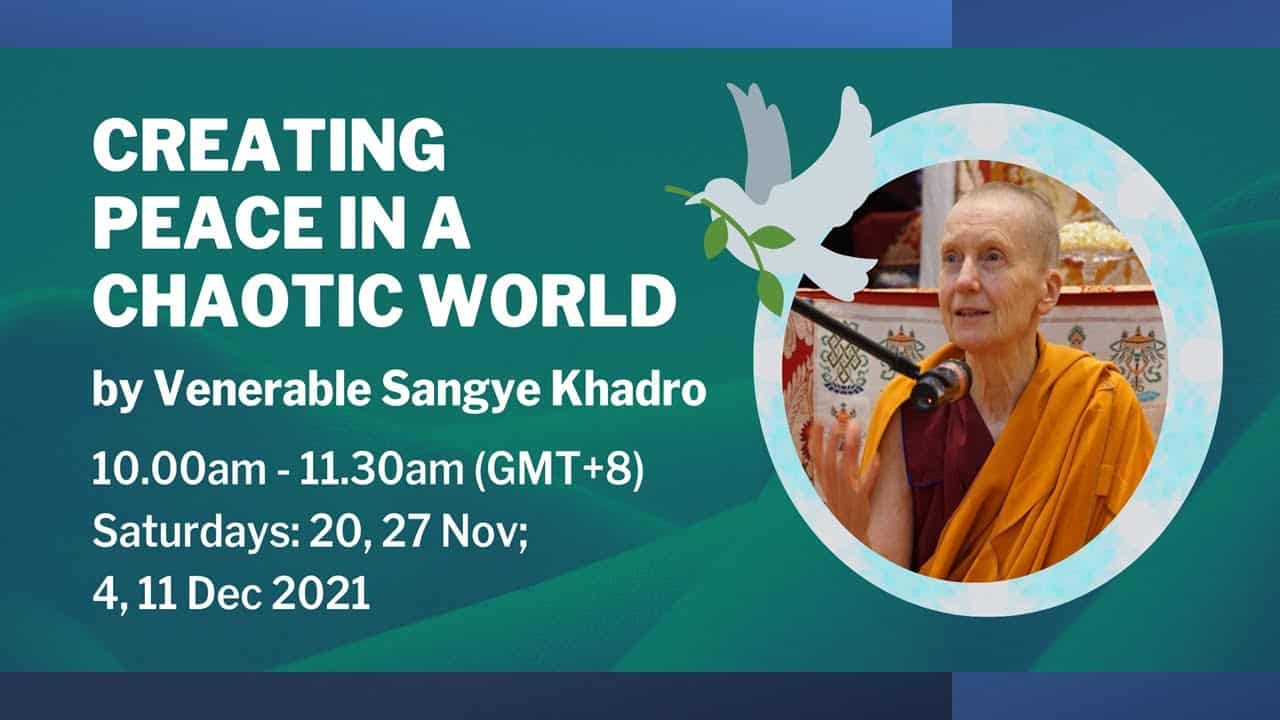Applying karma to our lives
42 Samsara, Nirvana, and Buddha Nature
Part of an ongoing series of teachings (retreat and Friday) based on the book Samsara, Nirvana, and Buddha Nature, the third volume in The Library of Wisdom and Compassion series by His Holiness the Dalai Lama and Venerable Thubten Chodron.
- Taking the recent trial and applying various aspects of karma
- Analyzing different factors and various cooperative conditions
- Considering the role played by the society
- Keeping the mind in a virtuous or neutral state
- Importance of having compassion towards those involved
- Explanation of Rice Seedling sutra
- Emptiness and dependent arising
- Different types of dependence
- Knowing the dharma and the Buddha
Samsara, Nirvana, and Buddha Nature 42: Applying Karma to Our Lives (download)
Contemplation points
- Sometimes people hear about karma and it seems very theoretical or people think it means fate or predestination or implies others deserved to be harmed. There are many misunderstandings. The functioning of karma and their effects is the milieu in which we live. It’s a natural law, just like gravity. Nobody created it or made it up. The Buddha didn’t make it up. He just described it out of compassion so that we could become more thoughtful about our actions and consider the results of our actions. Take some time considering this now. What misunderstandings have you had about karma and how did that affect how you interacted with and interpreted the world around you? How is your understanding different now? Has that made a difference in your experience of the world and events in it?
- Think of a difficult situation from your own life, someone close to you, or in the news. What were the cooperative conditions that contributed to the event? How did the relationships between the people involved affect how the situation was viewed, experienced. and how they acted in the situation? What kind of karma got each person involved?
- Regardless of how we view what is right and wrong in a situation, how is it possible to have compassion for both sides of an issue? What is most important to keep in mind when dealing with challenging societal situations?
- Venerable Chodron said that our first job in all this is to keep our mind steady and not go to anger. This keeps our minds in a neutral or virtuous state so that we can do what is possible and safe to try to change injustice and prevent harm from happening in the future. Spend some time really considering what that kind of mind is like and how that benefits everyone (vs. the afflicted mind).
- What did you learn from Venerable Chodron’s talk on karma that you want to apply in your own life moving forward? What was most meaningful to you?
- Explain in your own words what’s meant by “knowing the Dharma. And knowing the Dharma is knowing the Buddha.”?
Venerable Thubten Chodron
Venerable Chodron emphasizes the practical application of Buddha’s teachings in our daily lives and is especially skilled at explaining them in ways easily understood and practiced by Westerners. She is well known for her warm, humorous, and lucid teachings. She was ordained as a Buddhist nun in 1977 by Kyabje Ling Rinpoche in Dharamsala, India, and in 1986 she received bhikshuni (full) ordination in Taiwan. Read her full bio.


